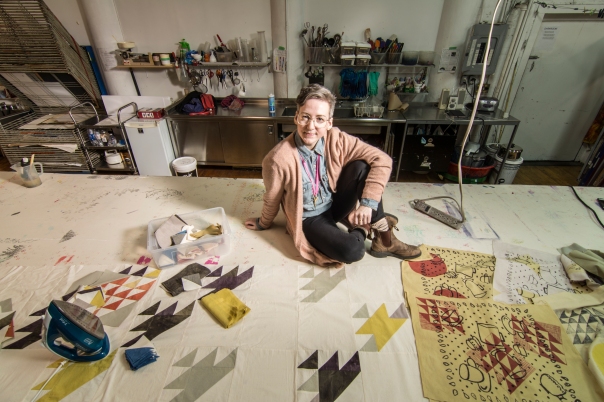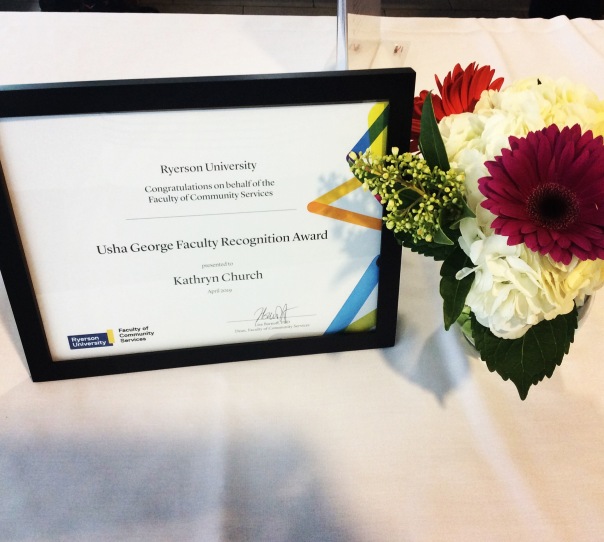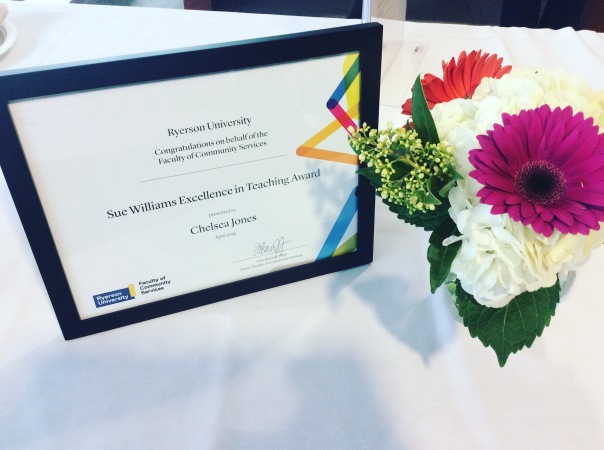
More often than not when I introduce myself, I reference the late psychiatric survivor Diana Capponi in saying: “I am a woman who wears many hats.” This feels like a fitting place to start as I introduce myself as the current Limited Term Faculty member in the School of Disability Studies. Why? Because it was through activists like David Reville – who filmed Diana saying those words not too long ago – and others within the psychiatric survivor community who introduced me to this school.
You see, while it might be new that I am a faculty member in the school, I have been traveling these halls well before I even thought it was possible for me to teach a course. As the story goes: I was in my first year of undergraduate studies and had moved a couple of provinces away from where I was born and raised. It was then that I was first implicated within the psychiatric system. I was going through significant experiences of crisis and distress and for two years had minimal supports, causing me to move back to Toronto. Still crazy, I re-started my academic career in Ryerson’s school of Social Work program. Still in need of support, I met up with David Reville, who promptly introduced me to other folks in the mad community as a way to get me active at multiple levels of community organizing. Feel free to come by and chat with me in my office in SHE 575 – I’ve got some great books and zines, always a cup of tea, and even a bit of mental patient art that we could chat about. My visits to David’s office got me through my entire academic career and through that I learned that relationships deeply matter in these institutions that seem to put too much focus on everything else.
My experiences in community organizing taught me that the idea of ‘making things better’ always has to be intersectional and outward looking – a praxis I learned from psychiatric survivor knowledges. What does this mean? As an artist, a scholar, and an activist I have come to learn that no matter what space you are in, the world wants to address issues of madness by looking inward and fixing/changing the individual person. However, without seeing madness as a social justice issue – one which requires we look outward and change the injustices in the world – the ‘problem’ of madness is continually addressed in ways that lack meaningful change and continue to reinforce white supremacy and heteropatriarchal norms. Interested to learn more about this? Check out the courses offered by the school: DST 500 History of Madness and DST 504 Mad People’s History.
But madness and Mad Studies is not all there is to me…not even close! As a fibre based artist I work primarily with the practices of quilting and natural dyes as a way to engage with activist based aesthetics. My studio based Phd project “Materializing a Mad Aesthetic Through the Making of Politicized Fibre Art” explored the role of artistic production within social movement organizing. As a practicing artist I’m interested in what art does in this world. How does art move us, provoke us, and incite change in the world around us? How might we use art not to answer questions but to render things problematic and why might this be an important place to dream up future change? If you’re ever interested in a studio visit, you can always come over to the 401 Richmond Building and hang-out with me at the Contemporary Textile Studio Co-op. I’m excited to be planning a Natural Dye Symposium this coming year, doing more advocacy work with Deaf Disability Mad Arts Alliance Canada, and just making more art. I’ve been fortunate enough this past year to be working with a bunch of QTBIPOC youth labelled with intellectual disabilities on some rad projects – like a new banner for marches – and I’m always interested in dreaming up other creative collaborations. Art is a meaningful way to create knowledge and to organize ourselves to work towards social change.
I’m excited to continue to get to know the community in the DS program at Ryerson. I am just about two months into this semester and I adore how supportive and connected all of my students are whether in-person or online. This year I’m teaching a number of fun courses: DST 500 History of Madness, DST 501 Rethinking Disability, DST 502 Disability and the State, DST 725 The Politics and Practices of Interventions, and DST 613 Strategies for Community Building. So, if you want to get into some meaningful dialogue around why and how disability matters in this world, join me in one of these classes. If you’re interested in things I’ve written in the past, feel free to check out places such as: Curriculum Inquiry, The Journal of Literary and Cultural Disability Studies, Canadian Art, Intersectionalities: A Global Journal of Social Work Analysis, Research, Policy, and Practice, Journal of Progressive Human Services, Studies in Social Justice, and the Journal of Progressive Human Services. Just a couple months in and it seems as if time is both flying by and going ever-so-slowly. One thing that I do know for sure though, is that my time in this school is full of possibilities!

